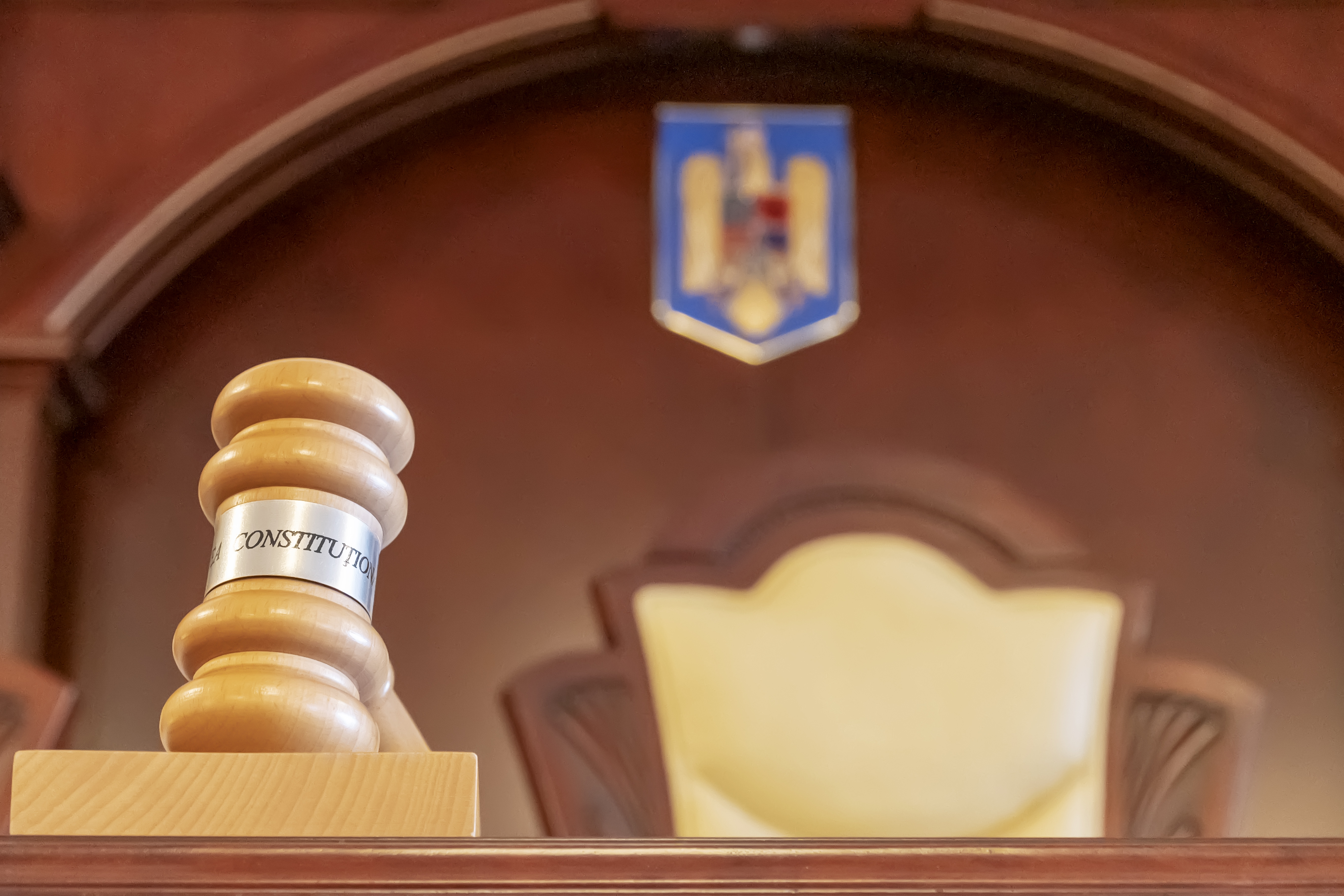At the hearing of 14 July 2021, the Constitutional Court, in the context of the review of laws subsequent to the promulgation, delivered the following decisions:
By a majority,
1. Upheld the objection of unconstitutionality formulated by the High Court of Cassation and Justice and found that the provisions of Article II of Law amending and completing Law No 303/2004 on the statute of judges and prosecutors and amending Law No 304/2004 on judicial organization were unconstitutional.
By unanimous vote,
2. Dismissed, as unfounded, the objection of unconstitutionality and found that the Law amending and completing Law No 303/2004 on the statute of judges and prosecutors and amending Law No 304/2004 on judicial organization, as a whole, was constitutional in relation to the criticisms made.
As for the criticisms of extrinsic unconstitutionality formulated in terms of the violation of the principle of bicameralism, the Court found that the initiated legislative proposal regulated the amendment and completion of Law No 303/2004, as well as of Law No 304/2004. The Reflection Chamber had the opportunity to rule on the amendment of Law No 304/2004, amendment which it expressly and explicitly rejected. The Decision Chamber has reintroduced in the body of the law that amendment of Law No 304/2004, so that it cannot be opposed to it the fact that this amendment has a novelty element as concerns the legislative proposal on which the Reflection Chamber has pronounced. The resumption of the normative content eliminated/rejected by the second Chamber, by lodging an amendment, does not amount to the violation of the principle of bicameralism, but it represents an expression of it.
Therefore, the Court found that the provisions of Article 61 (2) and of Article 75 of the Constitution were not violated with reference to the principle of bicameralism.
As for the criticisms of intrinsic unconstitutionality that have been formulated, the Court, given the hierarchical structure of the Public Ministry, ruled that the legislator has the constitutional obligation to establish vertically general and specific access conditions for the executive positions on different hierarchical levels. If specialized departments are organized within the same hierarchical level, the legislator may establish horizontally special or derogating access conditions within these compared to the already existing general and specific conditions; however, its margin of appreciation cannot manifest randomly/arbitrarily/subjectively, but it has to be unitary and coherent, respecting the principle of hierarchical control within the Public Ministry.
Seniority in office is the objective element on which is based any contest or interview procedure for professional degree / prosecutor’s office level advancement and is a necessary condition for any activity carried out at high or specialized level.
NAD and DIICOT are specialized departments within the Prosecutor’s Office attached to the High Court of Cassation and Justice invested with the investigation of highly complex cases confined to fighting against organized crime, terrorism and corruption, as the case may be.
The benchmark for establishing the seniority condition necessary to have access to the position of prosecutor within the specialized departments is the one set up for the promotion to the position of prosecutor at the Prosecutor’s Office attached to the High Court of Cassation and Justice,
It follows to be not only rational, but also imperative from the point of view of constitutional exigences that the effective seniority for the appointment in the positions of DIICOT or NAD prosecutor reflects the super-ordinated constitutional position of the Prosecutor’s Office attached to the High Court of Cassation and Justice within the structure of the Public Ministry, the capacity of specialized structure of this department, as well as the superior nature of the rank obtained. It would be a paradox to place both departments at the highest hierarchical level and their composition of prosecutors who at the beginning of their career whose seniority does not allow them not even the promotion to the position of prosecutor at the prosecutor’s office attached to the law court. Consequently, the effective seniority for these appointments has to be at least the same seniority that is necessary for having access to the position of prosecutor at the Prosecutor’s Office attached to the High Court of Cassation and Justice. Thus, Article II of the analyzed law is contrary to the constitutional position of the Prosecutor’s Office attached to the High Court of Cassation and Justice within the structure of the Public Ministry and, at the same time, violated equal rights, is not integrated into the legislation and is an element of legislative incoherence. Therefore, the Court found the violation of Article 1 (3) and (5), of Article 16 (1) and of Article 131 of the Constitution.
The legislator has the obligation to reconcile the legislative solution found to be unconstitutional with the Constitutional Court’s decision, for which purpose it is to modify the seniority conditions established by Article II [with refence to Article 79 ind. 1 (3) and Article 87 (2) of Law No 304/2004] and to corelate them with Article 44 (1) e) and (2) of Law No 303/2004.
The solution of the Constitutional Court strengthens the institutional position of both specialized departments, asserting the specialization, qualification and experience of prosecutors.
*
The decision is final and generally binding.
The arguments set out in the grounds for the decision of the Constitutional Court will be set out in the decision, which will be published in the Official Gazette of Romania, Part I.
External Relations, Press and Protocol Department of the Constitutional Court




